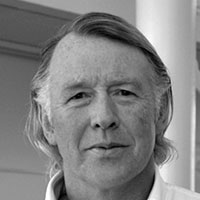Ronald T. Hay

Centre for Gene Regulation and Expression and Honourary member of Scottish Institute for Cell Signalling, College of Life Sciences, University of Dundee
Ron Hay was born and educated in Dundee and studied for a degree in Biochemistry at Heriot-Watt University, Edinburgh (1971-1975). His PhD was at the Medical Research Council Virology Unit in Glasgow (1975-1979) after which he was awarded a Damon Runyon-Walter Winchell Cancer Fund postdoctoral fellowship to work at Harvard Medical School, Boston on SV40 DNA replication (1979-1982). Returning to the MRC Virology Unit he established his independent laboratory (1982-1985), then moved to the University of St. Andrews where he held Lecturer and Reader positions before taking up the Chair in Molecular Biology and became Deputy Director of the new Centre for Biomolecular Sciences. In October 2005 he took up the Chair of Molecular Biology in the University of Dundee and is part of the Centre for Gene Regulation and Expression.
Ron's research has established conjugation with the Small Ubiquitin-like Modifier (SUMO) as an important regulatory mechanism in eukaryotes. A key role for SUMO and ubiquitin was uncovered in mediating the effects of arsenic when it is used therapeutically in the treatment of Acute Promyelocytic Leukaemia. Recently determination of the structure of a RING E3 ligase and ubiquitin-loaded E2 complex primed for catalysis has revealed the mechanism of ubiquitin modification.
Ron is a Wellcome Trust Senior Investigator and a fellow of the Royal Society, the Royal Society of Edinburgh, the Academy of Medical Sciences, Academia Europaea and is a member of the European Molecular Biology Organisation. In 2012 Ron was awarded the Novartis Medal and Prize of the Biochemical Society.
Hay's article
July 2013
